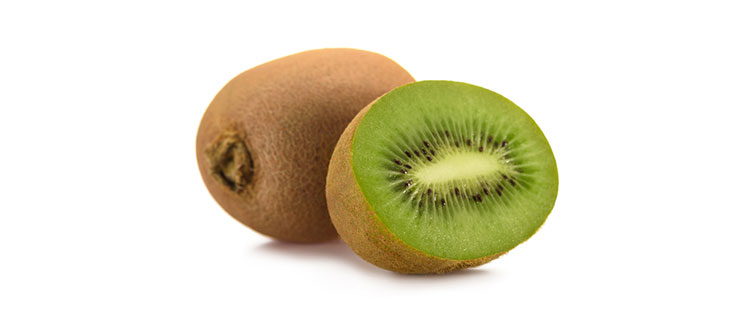Stools become hard as we age. Pharmaceutical products can help with the associated constipation, but sometimes those are just… too much. Natural stool softeners are a better solution for regular use to maintain a regular bowel movement.
Why Stools Become Hard
Stools become hard for two simple reasons: you haven’t been drinking enough water and haven’t been eating enough fiber. The consistency of the stool is closely related to its water content. Even minimal variations can change fecal consistency. A normal stool contains about 75% water but a hard stool has less than 72% water. A soft stool has at least 76% water.
It takes high amplitude peristaltic waves in the colon to move the hardest stools, but in soft stools, low amplitude waves are used by the body. The low amplitude waves are more frequent during the day, and mainly linked to gas or soft stool movement. The high amplitude peristaltic waves may be associated with pain moving hard stools.
Constipation becomes a real problem in the elderly when you add the chance that they are on medications that slow down the transit time of food through the GI tract. Opioid pain-killers are notorious for this.
Symptoms of Hard Stools
The symptoms of hard stools are abdominal pain, difficulty passing gas, pain passing stools, and straining when passing stools. The stools are generally hard and lumpy. You may feel discomfort in your intestines. You may even see your lower abdomen extended as fecal matter builds up in the body.
Best Natural Stool Softeners
Natural stool softeners will be ones that tend to be higher in fiber. Some of the ones on this list may surprise you.
1) Kelp Tablets
Kelp is a natural laxative. In one Japanese study, two-thirds of women who took the kelp supplement had experienced relief from their constipation while those who only took a spinach supplement had none.
2) Magnesium
Magnesium will help you poop, there’s no doubt about that. A study published in the American Journal of Gastroenterology found that magnesium oxide significantly improved frequency of bowel movements in 90 patients with constipation while another study in the European Journal of Nutrition found that daily consumption of natural mineral water with high amounts of magnesium sulfate worked well.
- Nerve, bone and heart support supplement: contains one 110 count bottle of Nature Made Extra Strength Magnesium 400mg Softgels for a 110-day supply
- Nature Made Magnesium Oxide 400 mg is a magnesium supplement for women and men that helps support nerve health, heart health, and bone health
In another study, women who consumed one liter of magnesium-sulfate mineral water had a reduction in their constipation and hard or lumpy stools. This occurred as early as the second week of treatment.
3) Slippery Elm Powder Mixed in Applesauce
Slippery elm contains mucilage, a thick, gluey substance product by plants and microorganism. It can turn into a gel when mixed with water.
It soothes all the mucosal membranes of the body and may be mixed into applesauce. It’s a known remedy in herbology for hard stools.
4) Acacia Fiber
- PREBIOTIC FIBER: Our 100% organic acacia senegal powder may help ease IBS-related constipation & diarrhea.* This whole food fiber prebiotic can assist with the growth of good bacteria in the gut.*
- FORMULATED FOR IBS: Soluble fiber may help support bowel motility, which can help IBS-related diarrhea & constipation.* Designed to slow colonic fermentation which may decrease gas & bloating.*
Acacia fiber when mixed in with yogurt and a probiotic called B. lactis can serve as a natural stool softener. According to South Korean researchers, improved constipation in those with irritable bowel syndrome, both those more susceptible to constipation and those more susceptible to diarrhea.
5) Prunes
I have written about prune juice for constipation before. It works! Why do you think prunes are regularly served at long-term care facilities? They are often blended into recipes where they go unnoticed. Ever had brownies made with prunes? Many can’t tell the difference – and they’re much healthier for it.
In a University of Iowa study published in 2011 in the journal Alimentary Pharmacology Therapeutics, 40 patients received either prunes (6 grams/day) or psyllium (6 grams/day) for 3 weeks each. The number of complete spontaneous bowel movements per week and stool consistency scores improved significantly with prunes compared to psyllium.
6) Psyllium
Psyllium is used a lot for constipation because it traps water in the intestine, increasing stool water. This ends up easing defecation. In a UK study in 2019, 8 healthy volunteers and 16 constipated patients received psyllium or a placebo for 7 days.
- FEEL WHAT LIGHTER FEELS LIKE. Metamucil traps and removes the waste that weighs you down* so you feel lighter and more energetic**
- MADE WITH PSYLLIUM HUSK FIBER. Metamucil Sugar-Free 4-in-1 fiber powder is made with naturally sourced psyllium fiber that helps promote digestive health and regularity*
The psyllium made the biggest difference in the microbial flora that was in the colons of those that were constipated, helping normalize them. The psyllium increased stool water and increased bowel movements.
7) Kiwi Fruit
In a study of 42 patients over the age of 60 years old, one group consumed kiwi fruit for the first three weeks while the second group. They ate one kiwi for every 66 pounds of body weight per day. When they consumed the kiwi, there was a significant increase in the frequency of defecation, stool volume and softness and ease of the bowel movement.
The researchers concluded that kiwi fruits are effective to treat constipation in the elderly.
Kiwis contain actinidin, an enzyme that enhances the digestion of protein and decreases the GI transit time. Other studies on kiwi have shown an improvement in bloating scores.
8) Nuts
Nuts are a high fiber food high in potassium and phosphate and usually forbidden in those who have end-stage kidney disease. However, Australian scientists found in a study that appeared in the Journal of Renal Nutrition in 2020 that 20 renal patients benefitted with the daily consumption of almonds for four weeks.
- NUT-rition Fiber Mix is a good source of fiber with 3g of fiber per serving
- Non-GMO Process Verified
The results were seen in constipation at weeks 2, 3, 4, and 10, as well as in their quality of life, vomiting, itching, skin changes and overall number of symptoms.
9) Beans
“Beans, beans, the magical fruit, the more you eat the more you toot.” You’ve inevitably heard the saying before. There’s a reason for it. Beans help you go #2.
Beans are naturally high in fiber and also lower cholesterol levels. Their consumption reduces the risk of chronic disease. They may also lower blood sugar levels and increase insulin sensitivity.
One-half cup of beans provides anywhere from 6 to 7.5 grams dietary fiber, a significant percentage of the daily 25 grams needed for women and 35 grams for men. The fiber in beans moves the bowels and also helps soften the stools.
10) Figs
Figs contain high amounts of cellulose, phenols, flavonoids, and anthocyanins, which have laxative effects.
In one study of 80 patients taking fig paste supplementation for 8 weeks, the results showed a greater improvement in transit time of the GI tract, stool consistency, and abdominal discomfort.
11) Flaxseeds
Flaxseeds have mucilaginous ingredients but are also lubricating and have stool-softening properties. In a study of 90 patients, 60 of them enriched their meals with flaxseed (50 grams/day) while the other 30 used lactulose.
- Ground organic flaxseed with great nutty taste
- 3 gram of dietary fiber per serving; 98 Milligrams of Lignans per serving
The ones using flaxseed improved the number of times they had bowel movements while decreasing the severity of abdominal pain. It was also less difficult to have bowel movements.
Other Natural Ways to Keep Stools Soft
If you still need help softening those stools, and want to avoid pharmaceuticals, here are a few other methods that might help you on the toilet.
1) Abdominal Massage
Remember a sign of constipation can be an extended abdominal region? That’s because of the build up of fecal matter. You can actually massage the area to help break it up and move things along.
Here’s how you can do a belly massage for constipation:
- Make a fist with your right hand. Place it on your abdomen at the level of your hip.
- Press firmly into your belly.
- Slide your hand in a circular motion up toward your ribs.
- Then move it across your belly, down your left hip bone, and back across the bottom of your belly. (Note this is a clockwise motion. Do not go counterclockwise.)
- Repeat for 10 minutes.
2) Exercise
Exercise naturally massages the bowels. Walking is best for most older individuals unless there is disability. There are also yoga moves for constipation that are simple and effective. Yoga is also great for seniors, regardless of constipation problems.
3) Dr. Christopher’s Lower Bowel Formula
Dr. John Christopher, N.D., created his Lower Bowel Formula decades ago and it has stood the test of time all these years. His formula is a combination of herbs designed to clean out the cells specifically in the colon and get them working as they should.
- Gentle Herbal Support: Features a unique blend of herbs traditionally used for digestive health and bowel function.
- Vegan Capsules: Easy-to-swallow, plant-based capsules suitable for vegan and vegetarian lifestyles.
The herbs are taken with the three meals you eat, so that the colon can be retrained to have a bowel movement after every time you eat. Note that the bowel movements should always be easy and natural, never hard and strained.
The formula is taken six days a week (you have a day off so your colon can ‘figure it out’ and get the message that it has to work on its own for six weeks. However, if you have had constipation for a while, it may take up to six months for your colon to remember the process.
At the end of the six weeks, you will then take one capsule less for the day. (you were taking 1-2 capsules with each meal) Then monitor your body’s response. Do you maintain the good function you had achieved? If so, then decrease the dosage by another capsule and see what happens.
This is how you can keep the amount of healing and wellness you have already worked for. Soon you will not need any capsules each day and can continue your normal good water intake and good fiber intake for good colon function.
Summary
Constipation is a pain – literally. If your stools are hard it becomes difficult to move them through your bowel. Soft stools are easier to pass. You don’t have to rush to the pharmacy for a solution, however. In fact, you are better off eating a healthy diet and exercising. Stay hydrated, eat well, and target some of the specific foods mentioned here to help aid your bowel movements.











